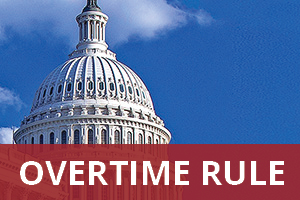US homeland security secretary Kristi Noem has written a “scathing letter” to Harvard University, demanding it submits records of international students’ “illegal and violent activities” by April 30, or face losing its eligibility to enrol student visa holders.
In Noem’s April 16 statement, she accused Harvard’s “spineless leadership” of “bending the knee to antisemitism” and “threatening national security”.
“Harvard’s position as a top institution of higher learning is a distant memory,” she added, cancelling two department of homeland security (DHS) grants worth USD $2.7 million on the basis that the university was “unfit to be entrusted with taxpayer dollars”.
DHS is threatening to strip Harvard of its Exchange Visitor Program (SEVP) certification, which allows colleges and universities to issue forms to admitted international students to use in their US visa applications.
The punitive measures are the latest in a dispute between Trump and the country’s oldest university, which saw USD $2.2bn in federal funding frozen after it rebuffed government demands, including reporting on international students and ending DEI policies.
What’s more, President Trump threatened on April 15 to revoke Harvard’s tax-exempt status over its “radical ideology”.
The University will not surrender its independence or relinquish its constitutional rights
Alan Garber, Harvard University
Last year, Harvard hosted 6,793 international students, totalling over 27% of the entire student body.
Across the country, more than a million international students attend US colleges every year, contributing $50bn to the economy, as previously reported by The PIE News.
The DHS letter – seen by the Harvard Crimson student newspaper – accused Harvard of creating a “hostile learning environment” for Jewish students and reminded the university it was “a privilege to have foreign students attend Harvard University, not a guarantee”.
Refusing to submit to the government’s previous demands, Harvard president Alan Garber said the university was committed to tackling antisemitism but maintained it would not “surrender its independence or relinquish its constitutional rights.”
“[The administration’s prescription] violates Harvard’s First Amendment rights and exceeds the statutory limits of the government’s authority,” Garber wrote in a message to the community.
In light of the recent escalation over SEVP certification, the university has maintained its position that it will not cede to government control, according to the Washington Post.
Alongside enhanced scrutiny of teaching, the government is requiring that Harvard reports on international students “supportive of terrorism or antisemitism” and those “hostile to American values”, ban all clubs supporting Palestine, and ban mask-wearing on campus, among other measures.
The directives largely stem from two of Trump’s early Executive Orders relating to “protecting the US from terrorism” and “combatting antisemitism”, which have led to over 1,320 international student visa revocations as of April 16, according to Inside Higher Ed.
Of this figure, 12 Harvard students and alumni have had their visas cancelled, though the university was not made aware of the rationale behind the revocations.
Student visas have been revoked for a variety of reasons, including some minor traffic infractions. Most of the high-profile cases involve students that participated in pro-Palestinian activism.
Challenges to the Trump administration have gained traction in recent weeks, with 19 states and 86 institutions supporting a legal challenge against the government’s revocation of student visas, led by the American Association of University Professors (AAUP).
Former President Obama, a Harvard alum, expressed his support for the university in a post on X, describing the government’s funding freeze an “unlawful and ham-handed attempt to stifle academic freedom”, urging other institutions to “follow suit”.
Meanwhile, hundreds of Yale faculty members have published a letter asking its leadership to legally challenge “unlawful demands that threaten academic freedom and university self-governance”.



